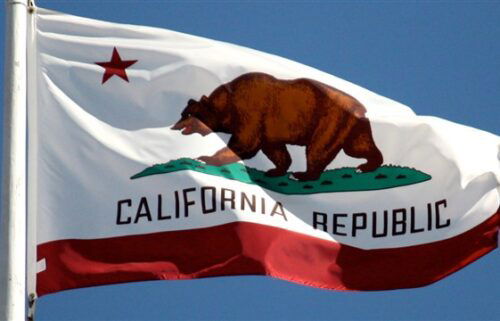Biden to call for a fight against antisemitism at a precarious moment in Israel’s war in Gaza and amid protests on campus

Originally Published: 07 MAY 24 05:00 ET
By Betsy Klein, CNN
Washington (CNN) — President Joe Biden on Tuesday aims to issue a clarion call to fight a swiftly rising tide of antisemitism amid a precarious moment in Israel’s war against Hamas and as protests have swept American college campuses, laying bare Biden’s trouble with some young voters.
Biden’s longtime and stalwart support for Israel has come under intense pressure as the humanitarian crisis in Gaza grows. More than 34,000 people have been killed in Gaza since October 7 despite the president’s efforts to convince Israel to strike a balance between defending itself and preventing the deaths of Palestinian civilians. While ceasefire talks are ongoing in Doha, Qatar, there is now the looming threat of an Israeli military invasion into the Gazan city of Rafah where many civilians have taken refuge.
Biden will deliver a keynote address Tuesday at the US Holocaust Memorial Museum’s annual Days of Remembrance ceremony at the US Capitol, remarks the White House says will honor the 6 million Jews killed in the Holocaust and “recommit to heeding the lessons of this dark chapter: Never again.”
Biden is expected to “speak to the horrors of October 7,” as well as the subsequent “alarming rise in antisemitism” in the US, according to White House press secretary Karine Jean-Pierre.
Tuesday’s remarks amount to a continuation of the White House’s strong condemnation of antisemitism throughout the conflict – but take place in the context of a dire humanitarian situation in Gaza and increasingly vocal protesters at home as Biden is trying to keep a splintering 2024 coalition intact.
The president spoke out forcefully against intensifying antisemitism and Islamophobia in the days after Hamas’ attacks on Israel, saying in an October 19 Oval Office address that Americans “can’t stand by and stand silent.” Yet in the seven months since the war began, Islamophobic and antisemitic incidents have significantly increased.
The most recent data from the Anti-Defamation League, which has tracked antisemitic incidents in the US since 1979, found a 140% increase in incidents from 2022 to 2023, with a “dramatic” increase taking place after October 7. And an ADL report on antisemitic attitudes in America in 2024 found that younger Americans are “more likely to endorse anti-Jewish tropes.”
“We are in a moment of crisis for the Jewish community. With antisemitism already at historic levels and Jewish students facing a tsunami of hate on campuses across the country, there’s no more important time for a full-throated condemnation of antisemitism in all forms,” Jonathan Greenblatt, CEO of the ADL, said in a statement.
While the president has been steadfast in his condemnations of antisemitism, the war in Gaza has made for a politically perilous topic for Biden and his White House as he tries to also show empathy with the conditions Palestinians now face in Gaza. The president has faced protests at nearly every public event outside of the White House in recent months for his support of Israel’s war against Hamas, and his handling of the war has been under intense scrutiny since the days after the October 7 attacks.
The president and his administration now face another potential tipping point in the war. The speech comes as Israel’s military has issued a call for residents of the eastern part of the Gazan city of Rafah to “evacuate immediately,” raising questions about whether Israel’s long-threatened assault on the city will soon be carried out – a move that the Biden administration has strongly cautioned against.
During nearly seven months of war, more than 1 million Palestinians have fled to Rafah, where Hamas is believed to have regrouped after Israel’s destruction of much of northern Gaza. Biden and his top lieutenants have repeatedly and emphatically made clear to their Israeli counterparts that they want to see a clear plan to protect civilians before any troops enter the area. While National Security Council spokesman John Kirby told reporters Biden “again made this clear” in a Monday call with Prime Minister Benjamin Netanyahu, it’s not clear such a plan has been presented to the US.
Concurrently, Hamas announced Monday that it had agreed to a ceasefire proposal brokered by the Qatari and Egyptian governments, though the proposal appeared to have significant deviations from a proposal that had been formed with Israeli input. The Israeli government was reviewing the Hamas offer on Monday but continued operations in Rafah.
The speech also comes as the administration is ramping up its response to pro-Palestinian protests over the war that have spread across the nation’s colleges and universities, with images of tension and some violence. More than 2,000 people have been arrested on college and university campuses since April 18.
The president made his most substantive comments on the matter last Thursday, saying he supports the right to protest and freedom of speech but “order must prevail.”
“Vandalism, trespassing, breaking windows, shutting down campuses, forcing the cancelation of classes and graduation – none of this is a peaceful protest,” Biden said. “Threatening people, intimidating people, instilling fear in people is not peaceful protest. It’s against the law.”
Biden is expected to reaffirm the right to free speech in his speech, Jean-Pierre said, but will emphasize that “there’s no place on any campus or anywhere for antisemitism.”
Asked by a reporter whether the sentiment on campus has caused him to shift his thinking on the conflict, Biden offered an emphatic, “No.”
The remarks appeared to mark a shift in the administration’s response to the protests. A day later, Education Secretary Miguel Cardona sent a letter to college and university presidents condemning “abhorrent” incidents of antisemitism on campus and highlighting available resources – a move aimed at further bolstering the administration’s public-facing response to the protests.
He cited specific reports from Jewish students of being physically assaulted or harassed while walking on campus, antisemitic statements, including that Jewish students should “go back to Poland,” verbal abuse and swastikas found on dorm room doors.
And on Monday, a day ahead of Biden’s speech, second gentleman Doug Emhoff hosted a number of Jewish students at the White House for a roundtable. Emhoff, who is the first Jewish spouse of a president or vice president and has been a key advocate on the issue, has made addressing antisemitism a cornerstone of his portfolio and has reached out to Jewish campus leaders.
The speech comes alongside a series of new actions the Biden administration is taking to build on its national strategy to counter antisemitism, the White House announced in a fact sheet.
The Department of Education’s Office of Civil Rights is sending a letter to every school district and college in the country with concrete examples of antisemitic discrimination that could be investigated under Title VI of the Civil Rights Act. There are currently 141 open investigations with colleges and universities under Title VI, which prohibits discrimination on the basis of race, color and national origin in programs and activities receiving federal financial assistance.
The Department of Homeland Security is working to “build an online campus safety resource guide” to provide “financial, educational, and technical assistance” for campuses. DHS is also developing and sharing “best practices for community-based targeted violence and terrorism prevention,” the fact sheet said.
And the State Department’s Office of the Special Envoy to Monitor and Combat Antisemitism “will convene technology firms to identify best practices to address Antisemitic content online,” the fact sheet said.
Biden’s speech comes one day after Yom HaShoah, or Holocaust Remembrance Day. To mark the day, Biden’s campaign issued a lengthy list of former President Donald Trump’s antisemitic comments and behavior, including reports that Trump has allegedly said that Adolf Hitler “did some good things.”
Still, Biden’s steadfast support for Israel’s military offensive in Gaza has eroded some of his support among the young voters he needs months before the general election. A poll by the Institute of Politics at Harvard University’s Kennedy School found that only 18% of young voters approve of Biden’s handling of the Israel-Hamas war.
The-CNN-Wire
™ & © 2024 Cable News Network, Inc., a Warner Bros. Discovery Company. All rights reserved.


